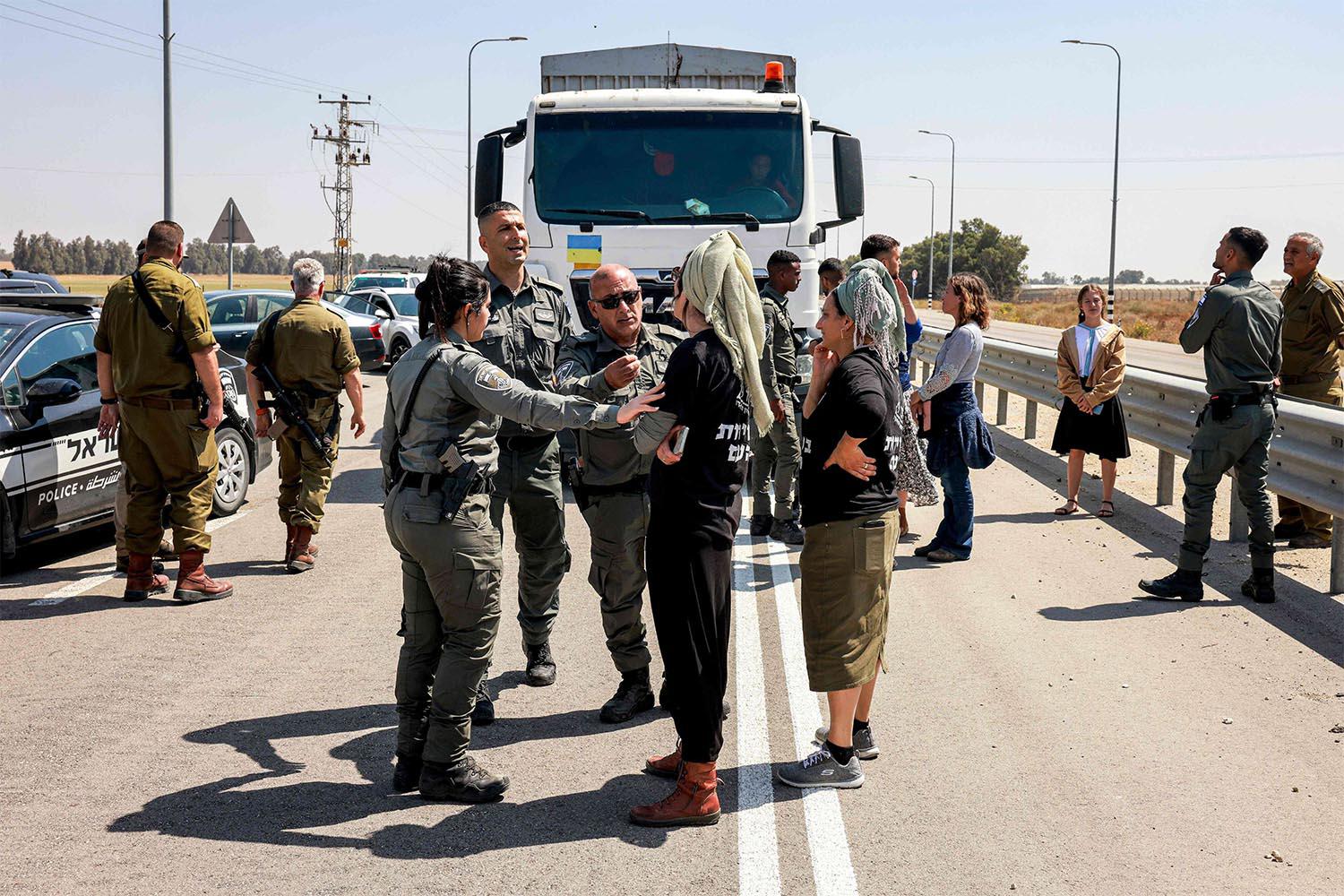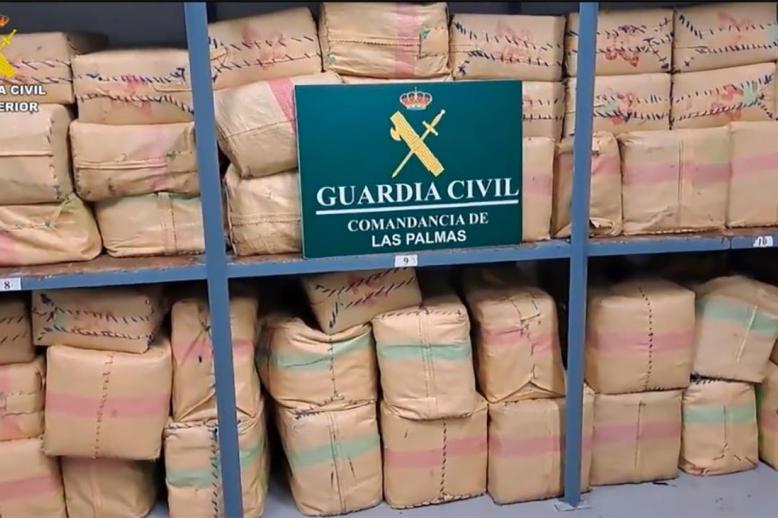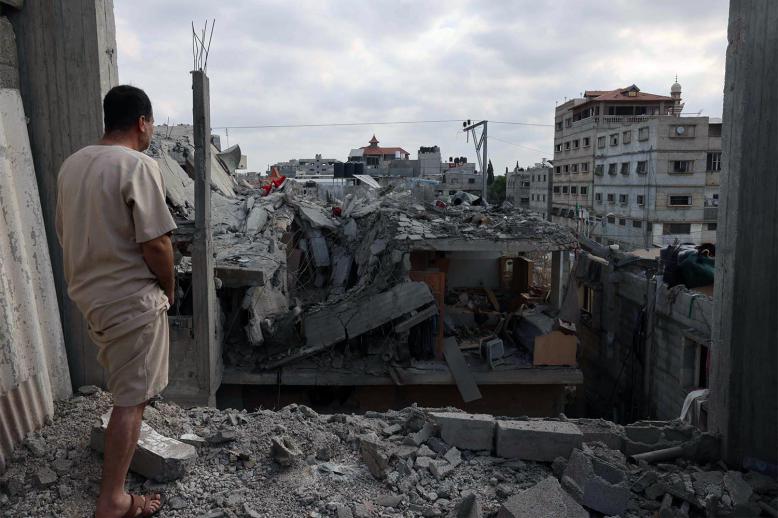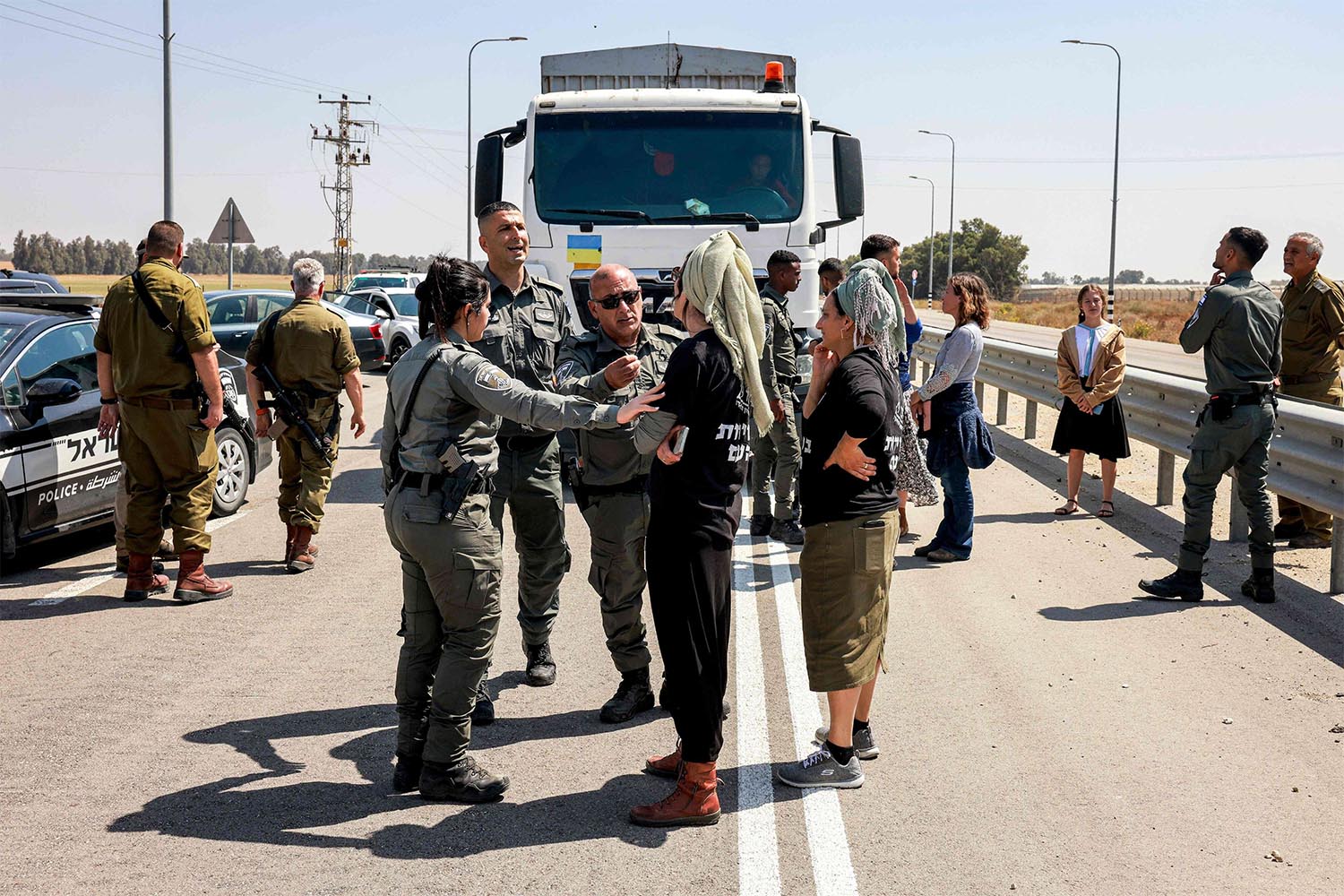UN rights office criticizes Israel’s 'unlawful' restrictions on Gaza aid
GENEVA - Israel is still imposing "unlawful" restrictions on humanitarian relief for Gaza, the UN human rights office said on Tuesday, despite assertions from Israel and others that barriers have eased.
Israel's offensive in the Gaza Strip triggered by Hamas' deadly cross-border attacks on Oct. 7 has turned much of the Gaza strip into a wasteland, with hundreds of thousands of people now displaced and crowded into disease-ridden shelters.
The amount of aid now entering Gaza is disputed, with Israel and Washington saying aid flows have risen in recent days but UN agencies say it is still far below bare minimum levels. "Israel continues to impose unlawful restrictions on the entry and distribution of humanitarian assistance, and to carry out widespread destruction of civilian infrastructure," said Ravina Shamdasani, spokesperson for the UN human rights office, at a press briefing in Geneva, reiterating calls for unfettered access.
Israel, which denies hindering humanitarian relief to Gaza, has faced increased international pressure to let more supplies into the Gaza Strip since it hit an aid convoy on April 1, killing international relief workers.
"Those delivering or trying to access humanitarian assistance must never be attacked," added Shamdasani.
More than 33,000 people have been killed in Gaza since Oct. 7, according to Palestinian health authorities and over 76,000 injured. The war was launched in response to Hamas attacks on Israel in which 1,200 people were killed and 253 people taken hostage, according to Israel's tally.
The UN children's agency (UNICEF) called for an increase in medical evacuations from Gaza, saying less than half of applications had been successful.
"With at least 70 children injured every day, we need the number of medical evacuations to increase so children can access the care they urgently need," said UNICEF's Tess Ingram at the same press briefing, describing cases of children she met who had endured gunshot wounds and amputations.
"Their shattered bodies and fractured lives are a testament to the brutality being forced upon them."





